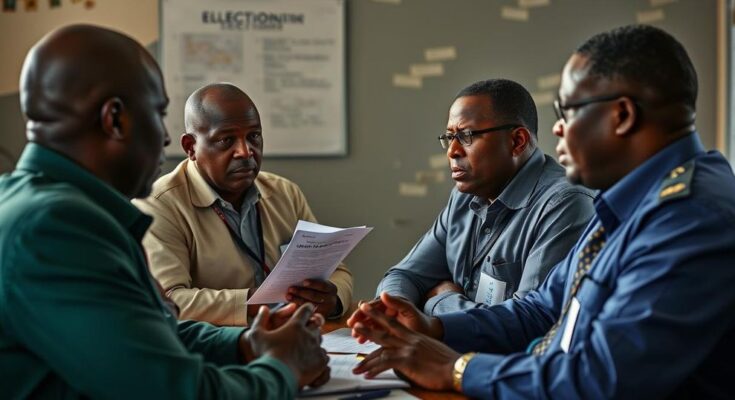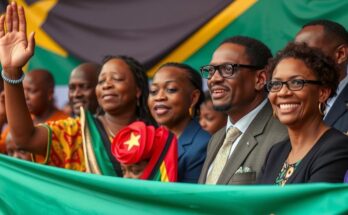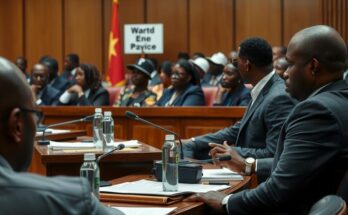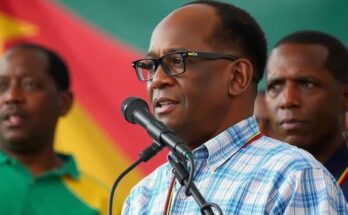Mozambique’s recent elections have been marred by allegations of fraud from opposition parties, particularly Renamo, which has claimed significant electoral manipulation favoring the ruling FRELIMO party. While official results suggest a clear victory for FRELIMO’s Daniel Chapo, opposition figures argue that their electoral rights have been undermined. There are also accusations of illegal voting by Zimbabwean citizens during these elections, creating further scrutiny of the electoral process.
Mozambique’s recent elections have been overshadowed by allegations of extensive fraud, particularly from the opposition party Renamo. While official results indicate that the ruling party, the Liberation Front of Mozambique (FRELIMO), is projected to win with Daniel Chapo as the candidate, opposition figures, including independent candidate Venancio Mondlane, contest these outcomes. Mondlane asserts that he has suffered from widespread electoral manipulation, labeling the events as ‘election rigging of the highest order.’ Officially, in the capital Maputo, Chapo reportedly won 53.68% of the votes, whereas Mondlane obtained 33.84%. In the conflict-stricken Cabo Delgado region, the results also favored Chapo, who garnered approximately 66% of the votes. FRELIMO representatives defend the electoral process, claiming transparency and fairness, despite growing concerns about Renamo’s diminishing strength as the primary opposition. Mozambican analyst Jaime Guiliche suggests that if current trends continue, Renamo may soon be eclipsed by new political movements such as Podemos, which supported Mondlane’s candidacy. Additionally, Renamo has issued complaints regarding the conduct of the elections, claiming irregularities, such as their observers being barred from overseeing the vote count. Candidate Manuel de Araujo has embarked on an international campaign to highlight the alleged electoral fraud and called for independent investigations into the practices of the electoral authorities, which he claims failed to provide adequate resources during the polls. Serious allegations have further arose concerning illegal voting, particularly reported by Mozambican citizens abroad and, notably, concerning thousands of Zimbabwean citizens who purportedly registered and voted in these elections without proper documentation. Zimbabwean media have publicized claims that members of the ruling Zanu-PF party in Zimbabwe actively encouraged and facilitated this voting, asserting a close political connection between Zanu-PF and FRELIMO. Overall, the elections have not only sparked debates about the legitimacy of the results but have also raised profound questions about electoral integrity in Mozambique, an issue with historical significance and long-lasting implications for the nation’s political landscape.
Mozambique, which has been governed by FRELIMO since achieving independence nearly fifty years ago, is undergoing a contentious electoral period. The recent elections have once again brought to light allegations of electoral fraud, resembling previous instances of manipulation that have marred the democratic process in the country. The opposition party Renamo has historically been in conflict with FRELIMO, a relationship marked by violence during Mozambique’s civil war. Recent political developments indicate a potential shift in the opposition landscape, exacerbated by the emergence of independent candidates who are drawing support away from traditional parties. The validity of these elections is further complicated by external influences, particularly allegations involving voters from Zimbabwe, thereby intertwining regional political dynamics with domestic electoral issues.
The recent elections in Mozambique have sparked significant controversy and allegations of fraud, particularly from opposition parties. While FRELIMO is often seen as the victor in the current political landscape, claims from figures such as Venancio Mondlane and Manuel de Araujo highlight serious concerns regarding electoral integrity. Moreover, reports of illegal voting by Zimbabwean citizens raise further questions about the legitimacy of the electoral process. As these allegations unfold, they could have a lasting impact on Mozambique’s political future and the trust in its electoral system.
Original Source: www.dw.com




